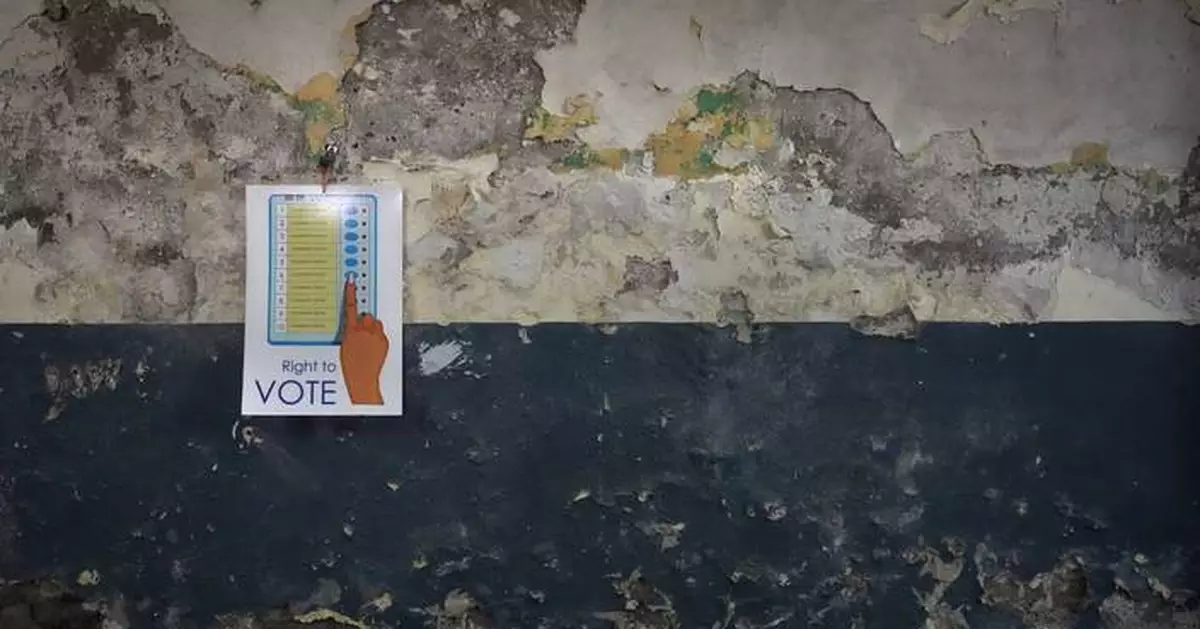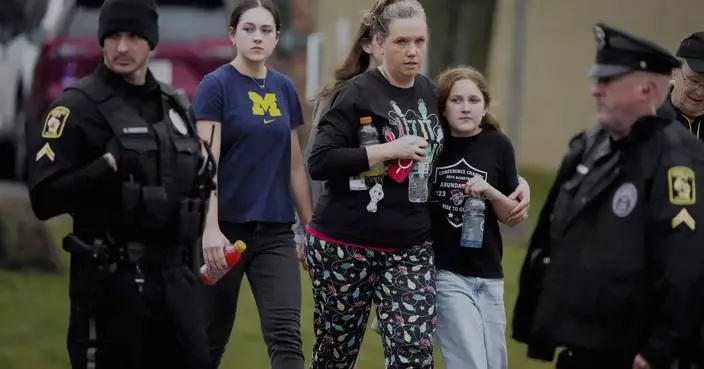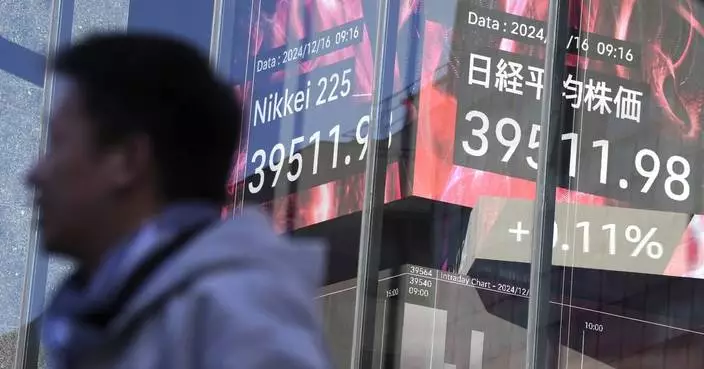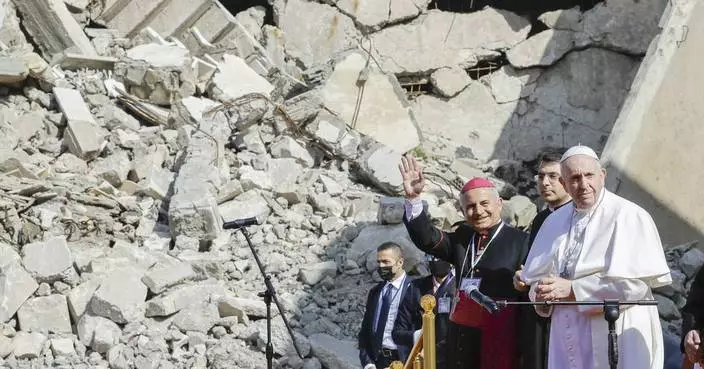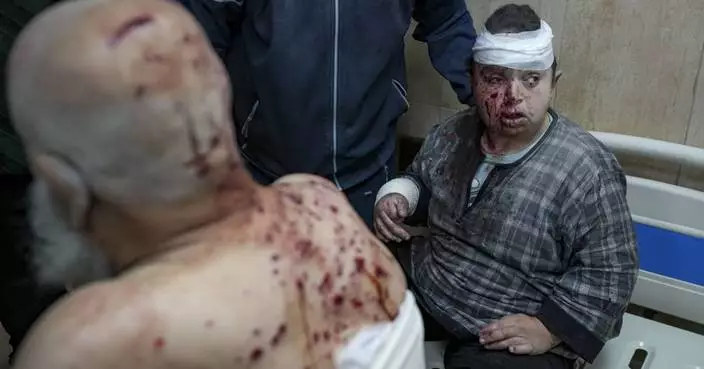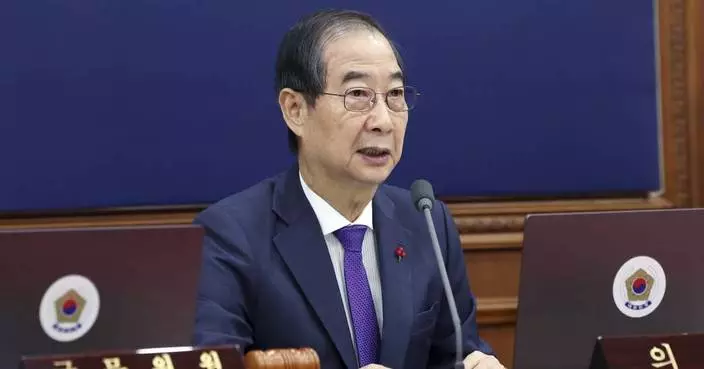NEW DELHI (AP) — A controversial legislation submitted by Prime Minister Narendra Modi’s government to change India's voting system failed to pass Tuesday in the country's lower house of Parliament.
Law minister, Arjun Ram Meghwal, presented the legislation which proposed allowing elections for state assemblies and the national parliament to be held simultaneously. However, it was not approved as the vote fell short of the required two-thirds majority; only 269 lawmakers voted in favor of the proposal while 198 were against it.
The government says simultaneous polls will result in higher economic growth and pave the way for better governance as they will reduce the frequency of election campaigns and expenses and allow politicians to focus on their work.
However, India’s opposition has strongly objected to the legislation, which has been under review for over a year. Critics say the proposed system will undermine federalism and risks shifting India toward a presidential election model and could give unfair poll advantage to the governing parties at the federal level in state elections.
The South Asian country of more than 1.4 billion people has 28 states and eight federal territories. Currently, staggered state and parliamentary elections are held at different times across India, with few state polls scheduled almost every year.
India’s last national election was held in seven phases over 44 days.
Meghwal said on Tuesday the government was willing to send the legislation to a parliamentary committee for wider consultation.
As per the draft, the legislation if approved as a law can be put into action in “the first sitting” of the lower house of the parliament after a national election — which implies it can’t be implemented until 2029 when the current government's term ends.
Modi’s government has long advocated for the proposed system and appointed a nine-member panel last year to look into whether it was feasible. The panel recommended the plan in March, saying it would help reduce wasting public funds and increase voter turnout.
The legislation must be approved by both houses of the parliament by a two-thirds majority in each before it becomes law. The new system, if approved, would also require amendments to India’s Constitution and approval from all states and federal territories, experts say.
Unlike its two previous terms, Modi’s Hindu nationalist Bharatiya Janata Party does not have a majority in the lower house of the parliament and banks on its partners from the National Democratic Alliance and friendly parties to get laws passed.
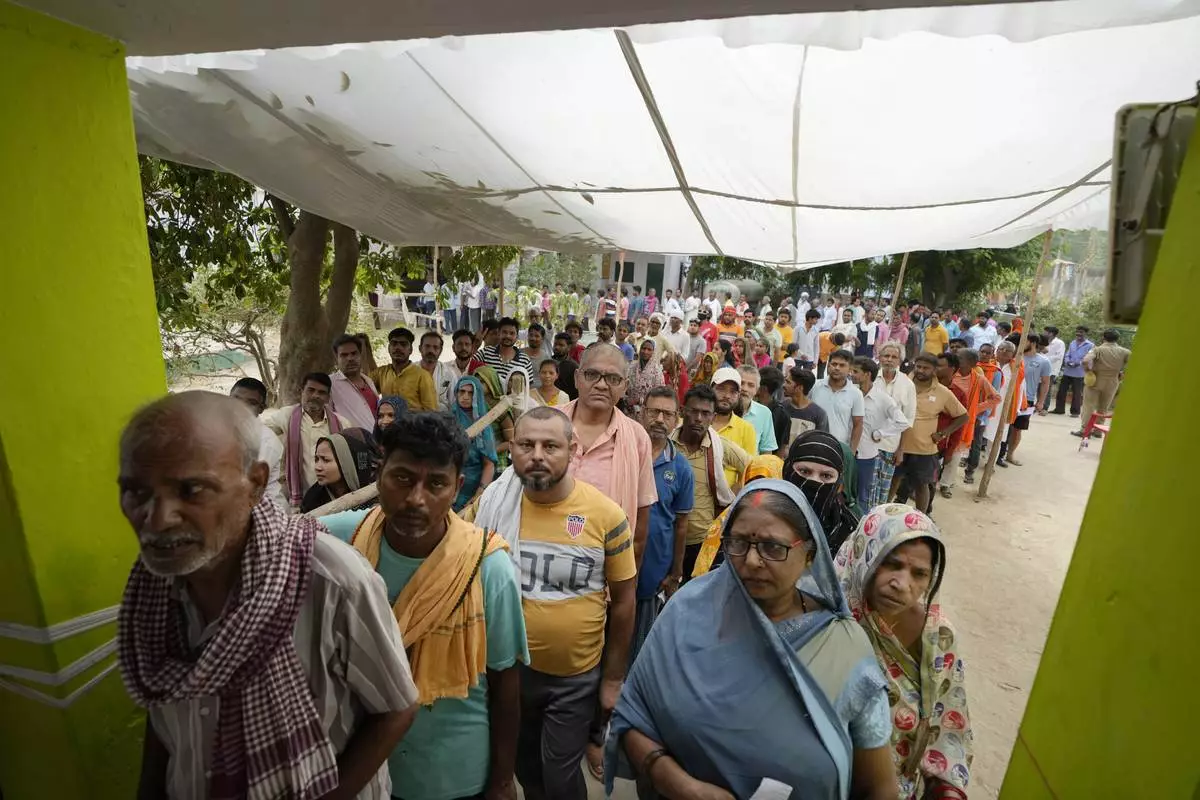
FILE - People stand in queues to cast their vote in the seventh and final phase of national elections, in Varanasi , India, Saturday, June 1, 2024. (AP Photo/Rajesh Kumar Singh, File)
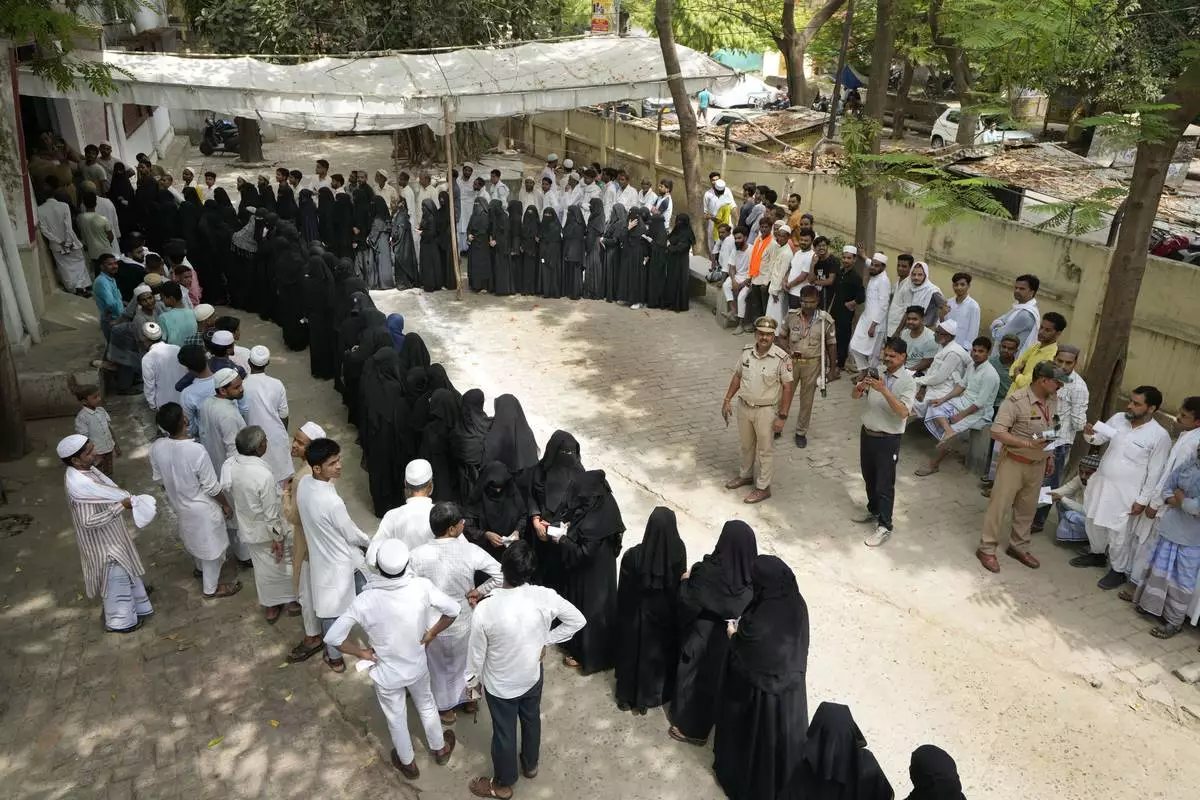
FILE - Muslims stand in queues to cast their votes in the seventh and final phase of national elections, in Varanasi, India, Saturday, June 1, 2024. Indians began voting Saturday in the last round of a six-week-long national election that is a referendum on Hindu nationalist Prime Minister Narendra Modi's decade in power. (AP Photo/Rajesh Kumar Singh, File)
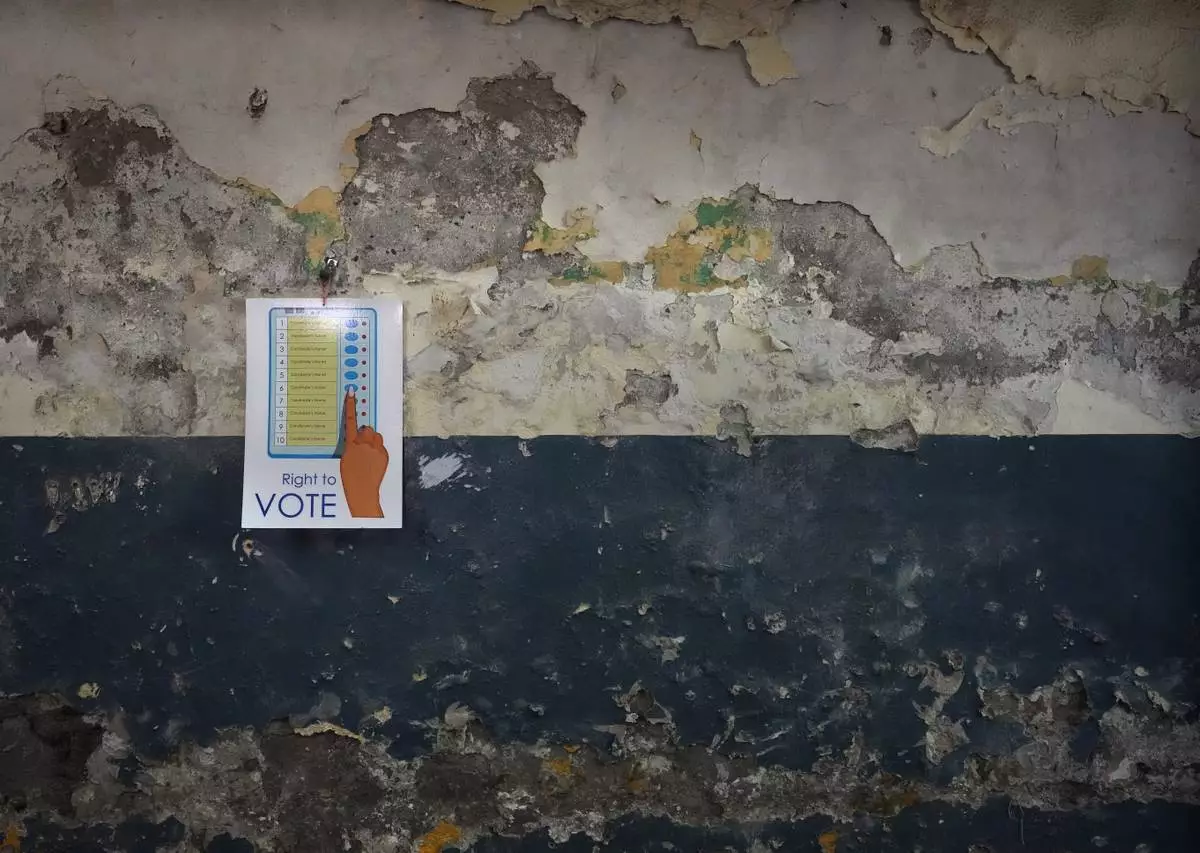
FILE - An illustration of an electronic voting machine is pasted on the wall of a school classroom turned into a polling booth on the eve of the sixth round of multi-phase national elections in New Delhi, India, Friday, May 24, 2024. (AP Photo/Manish Swarup, File)
A senior Russian general was killed Tuesday by a bomb hidden in a scooter outside his apartment building in Moscow, a day after Ukraine’s security agency leveled criminal charges against him. A Ukrainian official said the country's security service carried out the attack.
Lt. Gen. Igor Kirillov, the chief of the military’s nuclear, biological and chemical protection forces, was killed as he left for his office. Kirillov’s assistant also died in the bombing, which was triggered remotely, according to Russian news reports. Images from the scene showed shattered windows and scorched and blackened brickwork.
Kirillov was under sanctions from several countries, including the U.K. and Canada, for his actions in Moscow’s war in Ukraine. On Monday, Ukraine’s Security Service, or SBU, opened a criminal investigation against him, accusing him of directing the use of banned chemical weapons.
An official with the SBU said the agency was behind the attack. The official, who spoke on condition of anonymity because they were not authorized to release the information, described Kirillov as a “war criminal and an entirely legitimate target.”
The SBU has said it recorded more than 4,800 occasions when Russia used chemical weapons on the battlefield since its full-scale invasion in February 2022. In May, the U.S. State Department said in a statement that it had recorded the use of chloropicrin, a poison gas first deployed in World War I, against Ukrainian troops.
Russia has denied using any chemical weapons in Ukraine and, in turn, has accused Kyiv of using toxic agents in combat.
Kirillov, who took his current job in 2017, was one of the most high-profile figures to level those accusations. He held numerous briefings to accuse the Ukrainian military of using toxic agents and planning to launch attacks with radioactive substances — claims that Ukraine and its Western allies rejected as propaganda.
Since Russia invaded Ukraine, several prominent figures have been killed in targeted attacks.
Darya Dugina, a commentator on Russian TV channels and the daughter of Kremlin-linked nationalist ideologue Alexander Dugin, died in a 2022 car bombing that investigators suspected was aimed at her father.
Vladlen Tatarsky, a popular military blogger, died in April 2023, when a statuette given to him at a party in St. Petersburg exploded. A Russian woman, who said that she presented the figurine on orders of a contact in Ukraine, was convicted in the case and handed a 27-year sentence.
In December 2023, Illia Kiva, a former pro-Moscow Ukrainian lawmaker who fled to Russia, was shot and killed near Moscow. The Ukrainian military intelligence lauded the killing, warning that other “traitors of Ukraine” would share the same fate.
On Dec. 9, an explosive device was placed under a car in the Russian-occupied Ukrainian city of Donetsk, reportedly targeting Sergei Yevsyukov, the former head of the Olenivka Prison where dozens of Ukrainian prisoners of war died in a missile strike in July 2022. One other was injured in the blast. Russian authorities said they detained a suspect in the attack.
Associated Press writer Illia Novikov contributed from Kyiv, Ukraine.
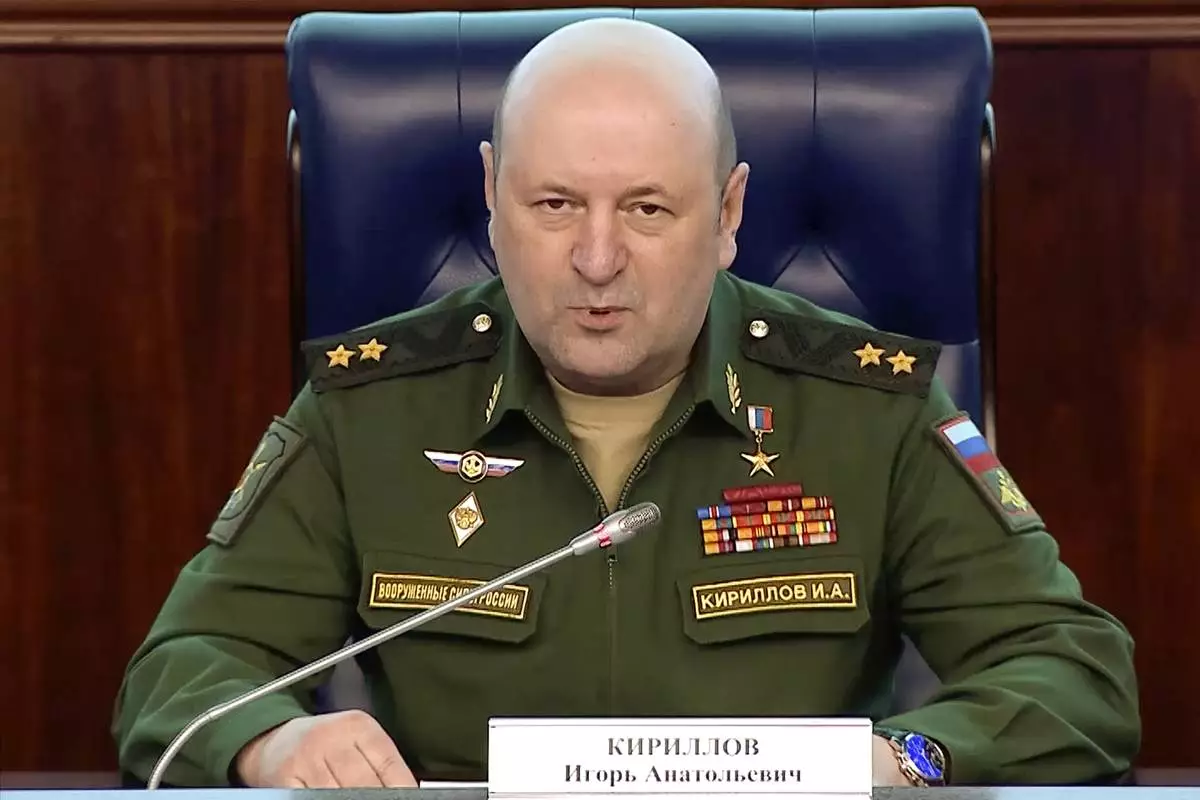
FILE - In this photo taken from video released by Russian Defense Ministry Press Service on Feb. 28, 2023, the head of the radiation, chemical and biological defense troops of the Russian Armed Forces Lt. Gen. Igor Kirillov speaks during a briefing in Moscow, Russia. (Russian Defense Ministry Press Service via AP, File)
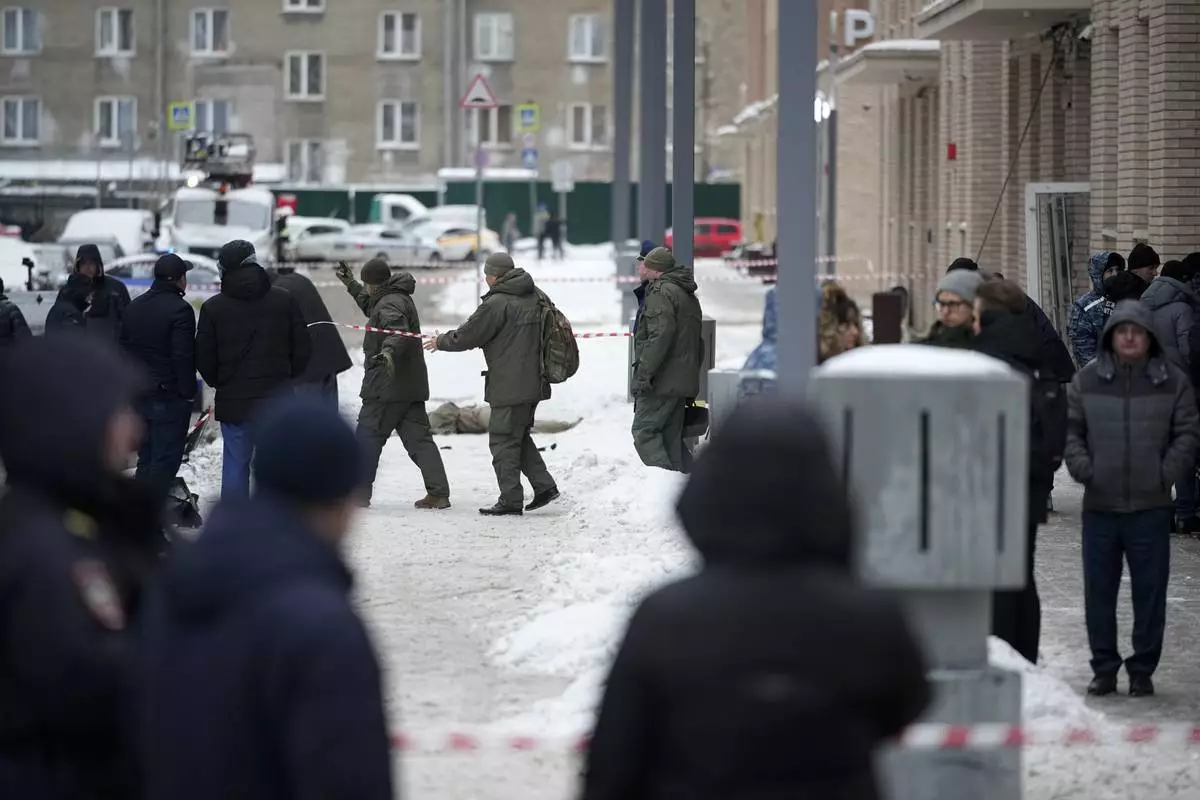
Investigators work at the place where Lt. General Igor Kirillov, the head of Russia's Nuclear, Biological, and Chemical Defence Forces was killed by an explosive device planted close to a residential apartment's block in Moscow, Russia, Tuesday, Dec. 17, 2024. (AP Photo)
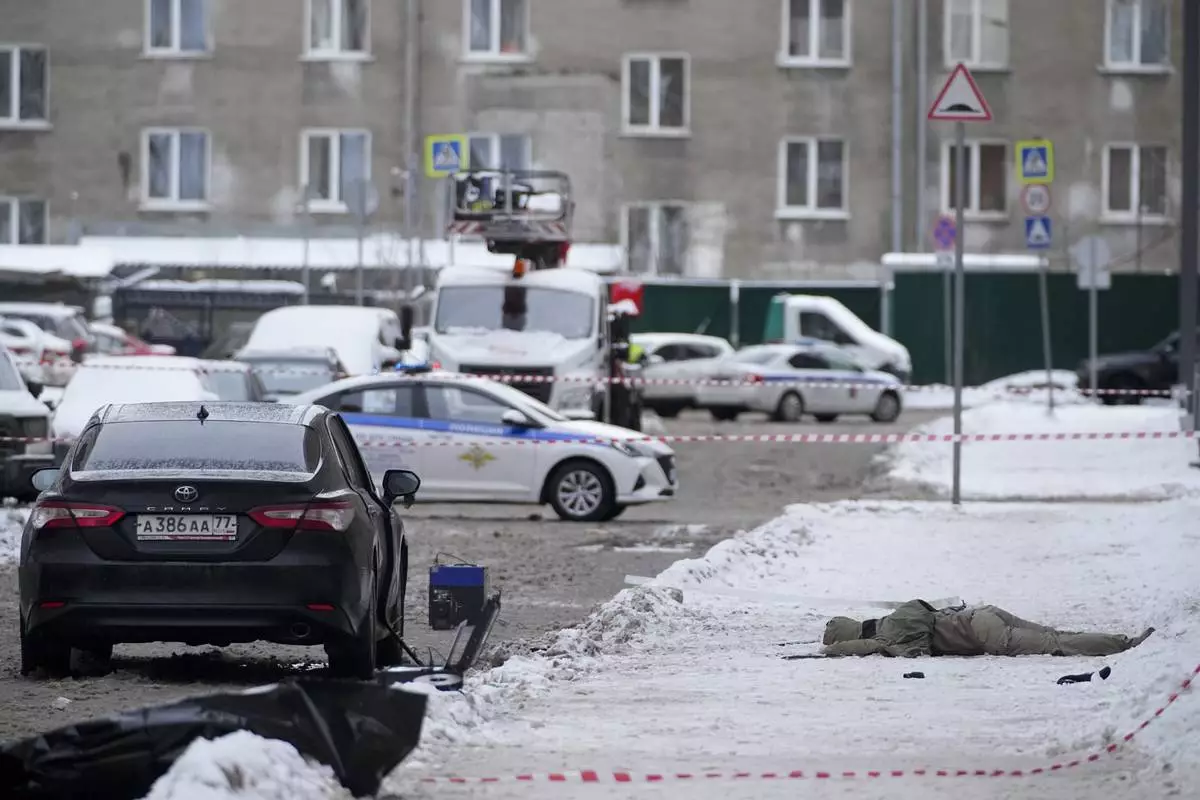
A body lies at the place where Lt. General Igor Kirillov, the head of Russia's Nuclear, Biological, and Chemical Defence Forces was killed by an explosive device planted close to a residential apartment's block in Moscow, Russia, Tuesday, Dec. 17, 2024. (AP Photo)
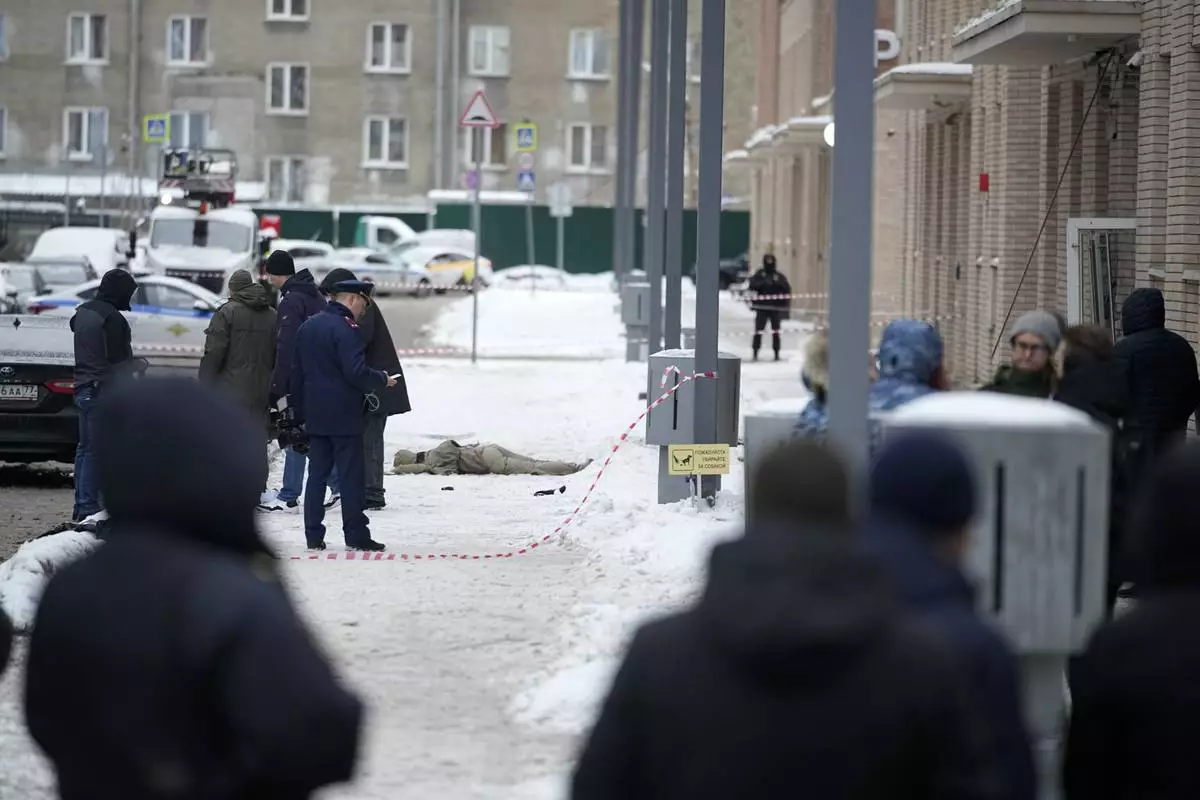
Investigates work at the place where Lt. General Igor Kirillov, the head of Russia's Nuclear, Biological, and Chemical Defence Forces was killed by an explosive device planted close to a residential apartment's block in Moscow, Russia, Tuesday, Dec. 17, 2024. (AP Photo)
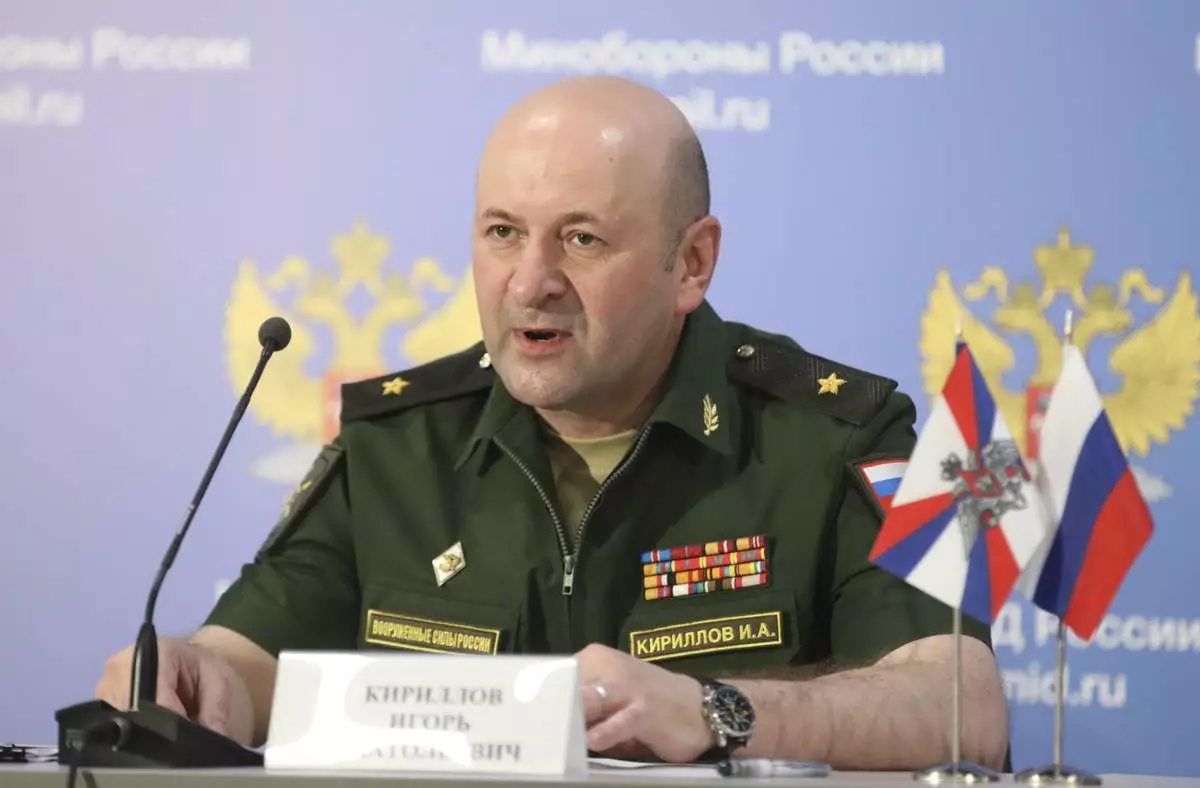
FILE - Maj. Gen. Igor Kirillov, the chief of the Russian military's radiation, chemical and biological protection unit, attends a briefing in Kubinka Patriot park, outside Moscow, Russia, on June 22, 2018. (AP Photo, File)





